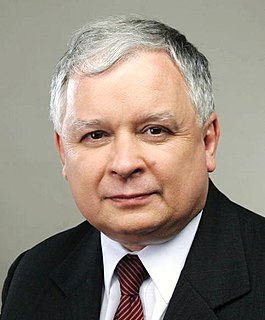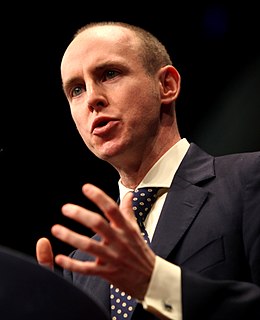A Quote by Lech Kaczynski
Nations are an historic reality in Europe. They all have different histories, and they joined the EU at very different times and under widely differing circumstances. I was mayor of Warsaw for three years and always in favor of Poland joining the EU. But I also experienced how we had to implement EU regulations that were completely inappropriate to our situation.
Related Quotes
Is it in the interests of Britain to leave or remain in the EU? As we saw in the referendum, there are different Britains and they see their interests in different ways. For a lot of everyday blokes the EU affected their sense of identity in ways they disliked, and they were right in thinking that the EU didn't return much to them by way of economic benefits.
unlike other countries, we're not skeptical at all when it comes to EU expansion. In fact, we are in favor of admitting Ukraine and Turkey. In this sense, one can hardly say that we are focusing unilaterally on our own national interests. Austria, for example, has held up the negotiations for Turkey's admission to the EU. Why am I against deeper involvement in the EU? There are several reasons for that.
If Turkey become a member of the EU, of course Turks would lose a part of this identity, just as Europe would lose a part of its own. It would also be a different Europe then. Accepting Turkey into the EU is an ambitious political endeavor of historical proportions. Europe would become a strong, multi-religious unit.
We are not perfect. But we have doubtlessly fulfilled our obligations to the EU to a greater degree than the EU has its obligations to Italy, when it comes to the relocation or repatriation of refugees that are in our country. Italy does its homework better than the rest of Europe. Instead of the 160,000 migrants that were to be distributed across Europe, we are currently at 300.
The EU is an alliance that the Americans control, in which the EU of course has a great deal of autonomy, but in which it still is very dependent on the United States, especially militarily, but not only in that respect. So to blame the Germans for everything is an easy way out for some of those suffering in Europe today.
Whenever the debate moves on to hard numbers - our deficit with Europe, our surplus with the rest of the world, our Brussels budget contributions, the tiny part of our economy dependent on sales to the EU, the vast part subjected to EU regulation - Euro-enthusiasts quickly shift their ground and start harrumphing about influence.
Germany's potential makes up about 20% of the EU's overall economic power, including Great Britain. The German army is by no means strong enough to guarantee the security of the EU's two endangered flanks - in the east and in the south. So all that remains for Germany is partnerships with its neighbours and other EU member states. Germany should stick to that role.
































